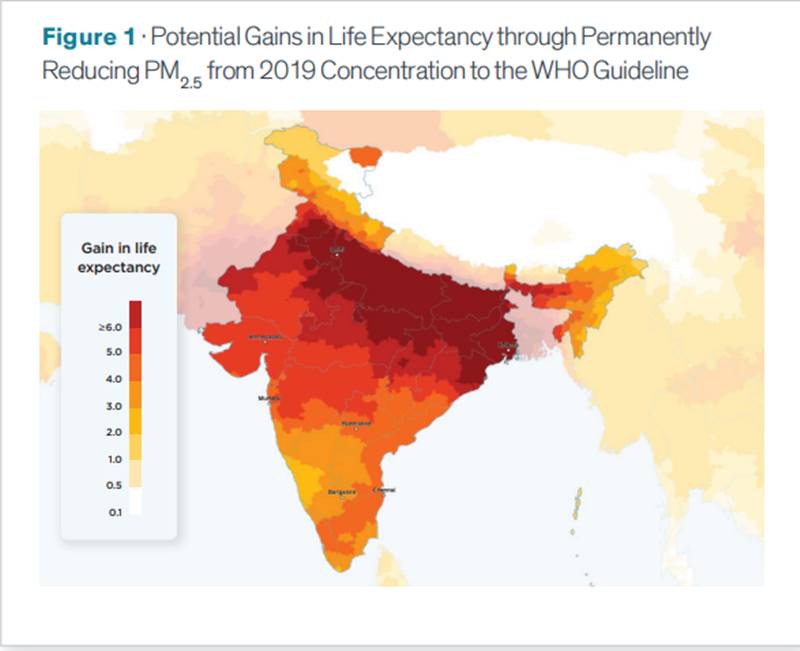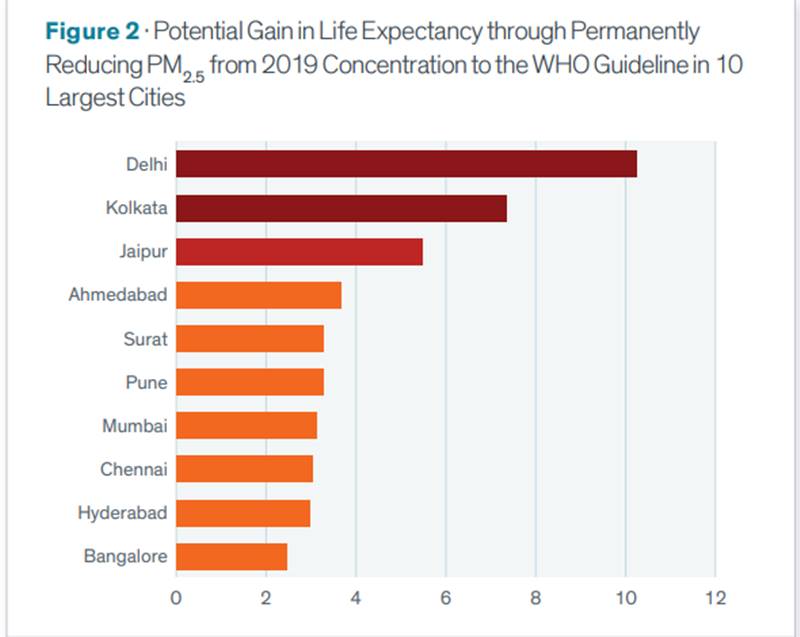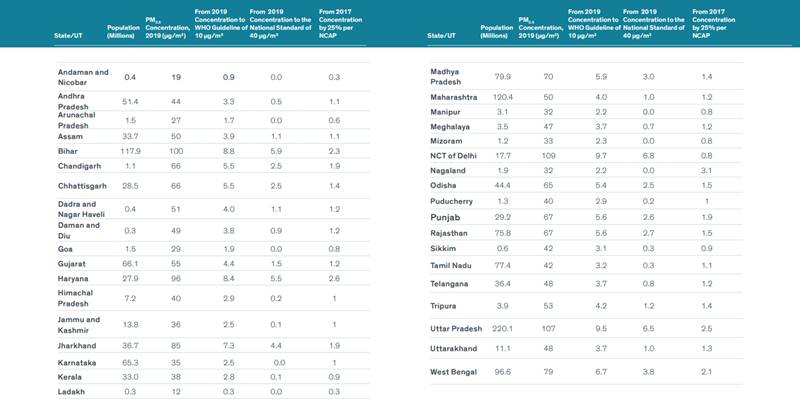‘Air pollution shortening lives by about 10 years in Delhi and UP’
A report shows that the people of India are expected to lose 5.9 years of their lives on account of air pollution. In Delhi, it is estimated that due to air pollution people’s lifespan is being reduced by 9.7 years.


Particulate pollution has a more devastating impact on life expectancy than communicable diseases such as tuberculosis, says the report. Photo: Pixabay
Nearly 40 per cent of India’s population is exposed to pollution levels not seen in any other country across the world. The estimated impacts are even greater across Northern India, which sees extreme levels of air pollution. Over 510 million residents of northern India, including those in Delhi and Kolkata, are expected to lose 8.5 years of life expectancy on an average, if these pollution levels persist.
These are the key findings of a report by Energy Policy Institute at the University of Chicago (EPIC) on Air Quality Life Index (AQLI) — a pollution index that translates particulate air pollution into its impact on life expectancy.
The report released today (September 1) reveals worrying data in the northern state of Uttar Pradesh. The annual average PM2.5 concentration in the cities of Allahabad and Lucknow in the state is 12 times the World Health Organization guideline (10 µg/m³). The report warned that the residents of Lucknow stand to lose 11.1 years of life expectancy if these pollution levels persist.

In 2019, India’s average particulate matter concentration was 70.3 µg/m³ — the highest in the world and seven times the WHO’s guideline of 10 µg/m³. “All of India’s 1.3 billion people live in areas where the annual average particulate pollution level exceeds the WHO guideline. Air pollution shortens average Indian life expectancy by 5.9 years, relative to what it would be if the WHO guideline was met,” stated AQLI report.
“Working unseen inside the human body, particulate pollution has a more devastating impact on life expectancy than communicable diseases like tuberculosis and HIV/AIDS, behavioral killers like cigarette smoking, and even war,” reads the report.

Can we still increase life expectancy?
In South Asia, the average person would live five years longer and more if pollution were reduced to meet the WHO guidelines, pointed out the AQLI report. For instance, residents of the national capital Delhi could see up to 10 years added to their lives if pollution were reduced to meet the WHO guideline.
Apart from Uttar Pradesh and Delhi, pollution has increased in the states of Maharashtra and Madhya Pradesh. For instance, the average person in these states is now losing an additional 2.5 to 2.9 years of life expectancy, when compared to early 2000.
Also Read: ‘Transport sector is the biggest source of Mumbai’s air pollution’
This indicates that India’s high levels of air pollution have expanded geographically over time. Compared to a couple of decades ago, particulate pollution is no longer a concern of the Indo-Gangetic plains alone.

Increasing national life expectancy
In 2019, the central government declared a ‘war on pollution’ and announced the National Clean Air Programme (NCAP) with an aim to reduce particulate pollution by 20-30 per cent relative to 2017 levels by 2024.
If India does achieve and sustain this reduction, the AQLI report suggests it would lead to remarkable health improvements. A nationwide reduction of 25 per cent — the midpoint of the NCAP’s target — would increase India’s national life expectancy by 1.8 years and by 3.5 years for residents of the national capital.

“The bad news is that the greatest impacts of air pollution remain concentrated in South Asia. The good news is that governments in this region are recognizing the severity of the problem and are now beginning to respond,” Ken Lee, the director of the AQLI, was quoted as saying in the statement.
“The Government of India’s National Clean Air Programme (NCAP) is an important step towards cleaner air and longer lives,” Lee added.
The benefits of clean air policies are even greater in the region’s pollution hotspots, such as Northern India, where 480 million people breathe pollution levels that are ten times worse than those found anywhere else in the world, pointed out the report.
Also Read: Explained: How air pollution affects monsoon rains in India

